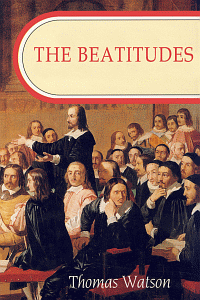Faithful pastors are ministers of the word and prayer. I don’t think I am out of line to say that most pastors struggle with the latter more than the former.
If my suspicion is correct then a remedy is needed. Prayer, as Bridges said, “is one half of our ministry, and it gives the other half all its power and success.” We will never be truly powerful in the pulpit if we are not powerful in prayer. Strategies for prayer-closet diligence abound, but let me offer one today you may not have considered before.
Here it is: spend time in your elders’ meetings praying for church members by name.
I’ll eventually get to how this relates to persistence in private prayer, but first let’s consider what praying for members by name in our elders’ meetings can look like.
WE MUST BE DOING THIS
I trust you need not be convinced that pastors ought to be praying for church members by name. But you may never have seen or heard how elders can integrate this into their regular meetings. Here’s how we do it at IDC . . .
First of all, we have two elders’ meetings each month: a “member centric” meeting and an “issue centric” meeting. These meetings usually occur on Thursday nights and run for 3-3.5 hours. Having two meetings each month gives us great ability to deal with pressing matters of oversight (normally at the “issue centric” meetings) and retain much time for shepherding through prayer.
At each “member centric” meeting we will pray through two pages of our membership directory, which is normally about 30 individuals. One month prior to this meeting, usually via email, each elder will delineate which members on the directory’s next two pages he will contact1 to discern how they are doing spiritually. From these conversations our elders arrive locked and loaded to the next month’s MC meeting with prayer request and spiritual updates.
When we come together at the MC meeting we usually settle some brief ministry matters before going into the time of prayer. Once we’re ready, we read off the first family unit (either a single member, or married couple), then elder who contacted them offers shares the update and points of prayer. After the update is given, one of the elders prays specifically for the family unit.2
The goal is to spend 5 minutes per family unit between the update and prayer, so going through two pages takes us between 90-105 minutes.
I can speak for the rest of our elders in saying we believe this is the single-most important and life-giving thing we do as elders.
HOW IT FUELS PRIVATE PRAYER
Now, back to the original point of this post: how does this practice fuel the pastor’s private prayer?
First, it helps me have somewhat recent knowledge of how every member of our church is doing. So as I pray through one page of the directory each day I am able to pray with specifics in mind.
Second, I find I am more burdened to pray for members after the MC meeting. It has an unexpected power in driving me to my knees in intercession.
Which leads to a third point. Faithful pastors are those growing in intercession and supplication. We are prone to focus all our prayer time on personal petitions for our family and skill in ministry, but we must balance that with the lifting up of others to God. Practicing intercessory prayer in the elders’ meeting flexes my prayer muscles and prepares them for diligence in private prayer.
Just as private prayer fuels public prayer, I’ve found this maxim to be true: group prayer fuels private prayer.
———————————————————————————————————







